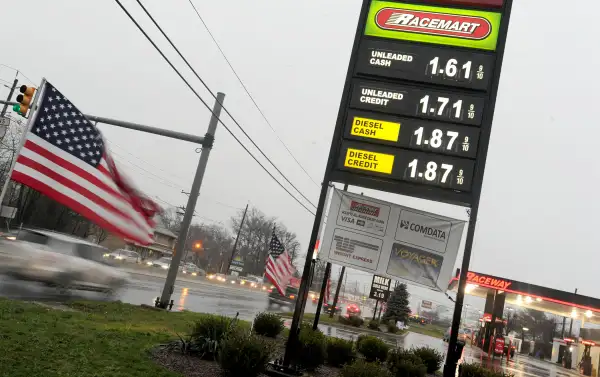Why You Should Consider a Diesel Car Right Now, Even with the VW Scandal

For most American drivers, 2015 was a year in which gas prices started out cheap and ended even cheaper. A year ago, the national average for a gallon of regular gasoline was $2.20, according to AAA. It flirted with $2 in late January, but didn't dip under the mark until very late in 2015, and remains at $1.99 today.
The 2015 gas story was quite different for Americans driving diesel cars. The year was dominated by the Volkswagen diesel emissions scandal, which not only crushed the owners of affected vehicles, but caused many to question the biggest selling points of diesel cars in general.
However, there's another aspect to the diesel equation that's been mostly overlooked in America—perhaps due to the combination of cheap regular fuel prices, the VW scandal, and general disinterest in diesel cars in the U.S. While regular gas prices rose slightly and then fell sharply throughout the course of 2015, diesel prices began high and ultimately decreased at a far more significant rate in the year.
The national average for a gallon of diesel fuel is now $2.25, down from $3.11 one year ago. That represents a decrease of 27%, compared to a drop of roughly 10% over the same time span for regular gas. Over the past month, average diesel prices have fallen 15¢, compared to only a 5¢ drop for regular gas.
Many drivers are attracted to diesels—and are willing to pay a premium for them—because of their superior fuel efficiency and the potential to save money over the long haul. Such a significant dip in diesel prices obviously changes the equation for when it makes sense to choose diesel over gas.
It's "time for a rethink about the car you choose to drive if you're in the market for a more efficient, longer lasting and cheaper set of wheels," GasBuddy noted regarding diesel prices' decline. "Diesel vehicles cost 15% to 20% more, but get 24% to 29% better mileage than equivalent gasoline models."
America isn't the only place where diesel prices have plummeted. Prices are also down substantially in Europe, and it's a much bigger deal there because diesel cars have more than 50% of the market. The BBC reported that some supermarket chains in the UK just dropped diesel prices to 99p per liter, which is the cheapest they've been since 2009. Average prices from 2011 to 2013, by contrast, were over 140p per liter.
It's not clear if cheaper diesel fuel prices will wind up boosting sales of diesel cars in the U.S., though, where only 3% of cars sold are diesels. The Detroit Bureau pointed out that Elmar Degenhart, the CEO of Continental AG, one of the world's largest auto suppliers, recently told a German newspaper, “The diesel passenger car could sooner or later disappear from these markets,” including Japan, China, and North America.
Apparently, the reasons for diesels being pushed further off the roads include the VW diesel scandal, the continuation of low fuel costs and higher fuel efficiency among gas-powered cars, and the shift to more vehicles running on alternative power such as hydrogen and electricity. But if you've been on the fence about a diesel car, the combination of low demand in the American market and cheap fuel prices could help you pull the trigger.
